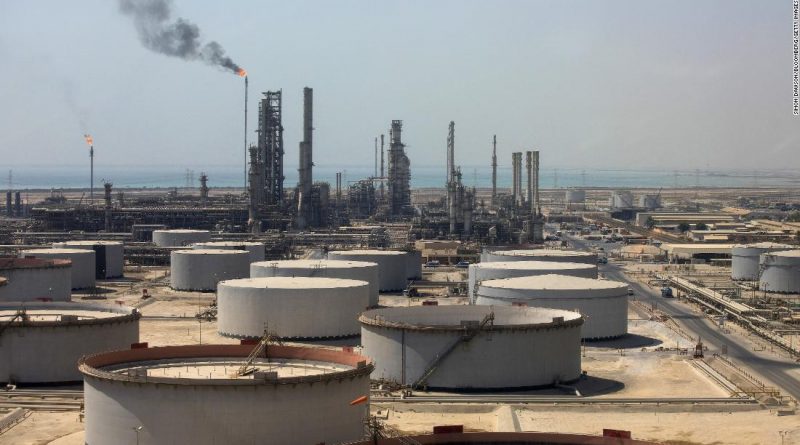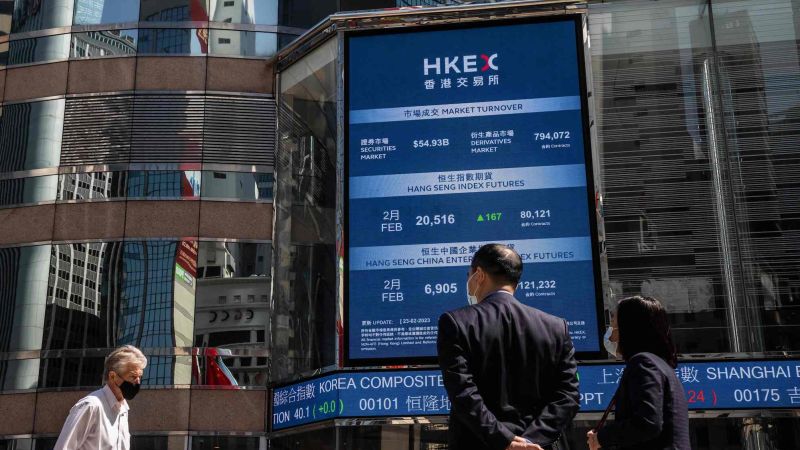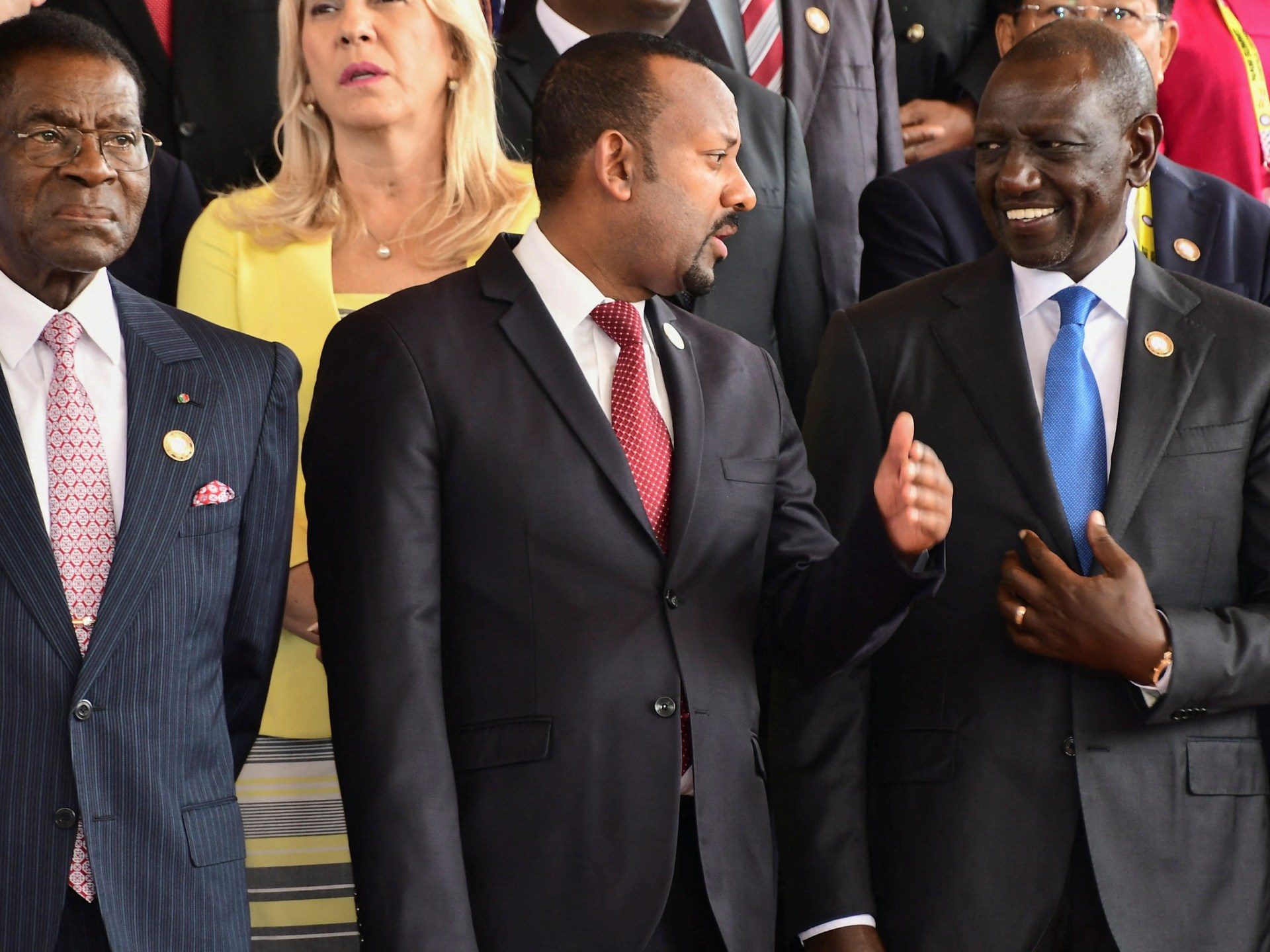Why US politicians are trying to break the world’s oil cartel now
To become law, the bill has to go through the full Senate and House, then be signed by the President. White House spokeswoman Jen Psaki said the administration has concerns about the “potential implications and unintended consequences” of the legislation. She said the White House is still studying the bill.
Mills told CNN why American politicians are making a new attempt to crush OPEC:
How is this attempt different from earlier ones?
There have been various versions of this since 2000, and it pops up whenever oil prices are high. It has never passed, and it never really got much traction. This time, in the government, it has gotten more traction, partly around Russia.
Biden is also under political pressure because of inflation. There is some political milage to blame OPEC for high oil process.
How have Saudi Arabia and other OPEC states responded to such attempts in the past?
They have always lobbied against it, and they will lobby again. I am not sure how strong their lobbying power is right now. They are not particularly popular in Washington at the moment, but they have their lobbyists.
How do you think oil producing states will respond to the bill?
I don’t think Middle Eastern countries can keep restraining production and refuse to play the game. They can be more cooperative and agree to increase production [but] they wouldn’t want to be seen doing that under pressure. The EU ban on Russian oil imports will take some time to have effect [so] OPEC and OPEC+ could have a few extra months where it becomes clear that there is a shortage of oil, and that gives them a reason to say: “well, we will increase production and makeup this gap.” So they can do that as a market measure without appearing to give in to political pressure.
How likely is this bill to be passed in the Senate and House? Is there a chance that Biden will pass it too?
Having another card to play will be quite appealing to the administration, even if they don’t let it go all the way. The NOPEC bill is an additional element at a time when the US doesn’t have that many cards to play [against oil producers]. Many of those bills have come up in the past, and there is always some national security argument that [oil producing states] are our allies, that we don’t want to disturb our relationship with them, and that they are important to the oil market. But this time there are a few elements that may give it a better chance.
[Biden] would have to either let it pass, or he would have to say, “I have vetoed it because the Saudis agreed to something for us” [like] agree to increase production or something. He can’t just veto it for no reason because that is just one more weapon against him from both the Republicans and the Democratic progressive left, saying he is [doing the] Saudis a favor at a time when oil prices are high.
Not vetoing it would be seen by Saudi Arabia and other producers as quite a hostile move.
Could passing this bill have a detrimental effect on the US itself?
The recovering prices have been very good for the US oil industry. But practically there isn’t that much spare capacity [in the US]. Even if Saudi and the UAE used all their spare capacity, the market is still pretty tight, and with Russia coming off, the market will get tighter.
This transcript has been edited for length and clarity
The digest
US says it is preparing for a world both with and without an Iran nuclear deal
The United States is now preparing equally for both a scenario where there is a mutual return to compliance with Iran on a nuclear deal, as well as one in which there is not an agreement, the State Department said on Wednesday.
- Background: The main sticking point in talks is Iran’s demand that its Revolutionary Guards be removed from the US’ list of foreign terrorist organizations. On Wednesday, the US Senate passed a non-binding resolution that calls on the Biden administration not to agree to a nuclear deal with Iran unless Tehran accepts tough minimal requirements, such as preventing oil exports to China, curbing its ballistic missile program, and the continuation of sanctions on the Revolutionary Guards.
- Why it matters: A failure in talks to revive the Iran nuclear deal would deprive oil markets from over a million new barrels of Iranian oil that could ease the rise in crude prices and in turn tame inflation.
Iran to execute Swedish-Iranian on spying charges by May 21
A Swedish-Iranian sentenced to death in Iran on espionage charges will be executed on May 21, Iran’s semi-official ISNA news agency said on Wednesday. The Swedish foreign minister called for his release in a call with her Iranian counterpart.
- Background: Ahmadreza Djalali, a doctor and researcher, was arrested in 2016 while on a visit to Iran. His sentence was announced shortly before the trial of Hamid Noury, a former Iranian prosecution official arrested by Swedish authorities in 2019, ended in Stockholm. Noury faces a maximum life sentence on charges of international war crimes and human rights abuses. Iran has called the accusations “baseless.” The verdict is due on July 14.
- Why it matters: Iran’s Revolutionary Guards have arrested dozens of dual nationals in recent years, mostly on espionage charges. Rights activists have accused Iran of using them as bargaining chips. Iran, which does not recognize dual nationality, denies taking prisoners to gain diplomatic leverage.
At least three killed in attack on Israel’s independence day
At least three people were killed and four injured in an attack in the central Israeli city of Elad on Thursday, according to Israel’s emergency response services. Police said the incident involved two suspected assailants. One fired a rifle while the other attacked people with an axe or a knife, police said. The suspects have still not been apprehended.
- Background: The attack marks the latest in a series of violent incidents that have put Israel and the Palestinian territories on edge in recent weeks. Dozens have died in attacks in Israel and the West Bank since March 22, according to a CNN count.
- Why it matters: The attack comes after a period of clashes at Jerusalem’s al Aqsa mosque compound, where Palestinians have protested the presence of Israeli troops. Only Muslims are allowed to visit the holy site during the last 10 days of Ramadan each year. Ramadan ended last week and groups of Israeli Jews began visiting again on Thursday.
What’s trending
Turkey: #sigarazammi (cigarette rise)
Turks, already frustrated with record inflation and an economic downturn, got one more burden on their budgets this week: the price of cigarettes.
The price of cigarettes has risen by 2 lira ($0.13) for some brands, accounting for a 5% to 10% climb depending on the type of cigarette, according to Ozgur Aybas, the president of the alcohol and cigarette dealers platform known as Tekel. A hashtag lamenting the rise was trending in the country.
“Enough!” one Twitter user posted on Thursday about the rising price of cigarettes. “I quit just in time,” another posted, saying they gave up the habit more than a month ago.
Ali Babacan, former economy minister and current leader of opposition party Deva, tweeted “We are experiencing a destruction where the purchasing power of people who earn money by working is destroyed.”
#enflasyon, or inflation, was also trending in Turkey.
In February, Turkey’s economy and finance minister said country will see single-digit inflation by June 2023, when parliamentary and presidential elections are expected to take place.
By Isil Sariyuce




